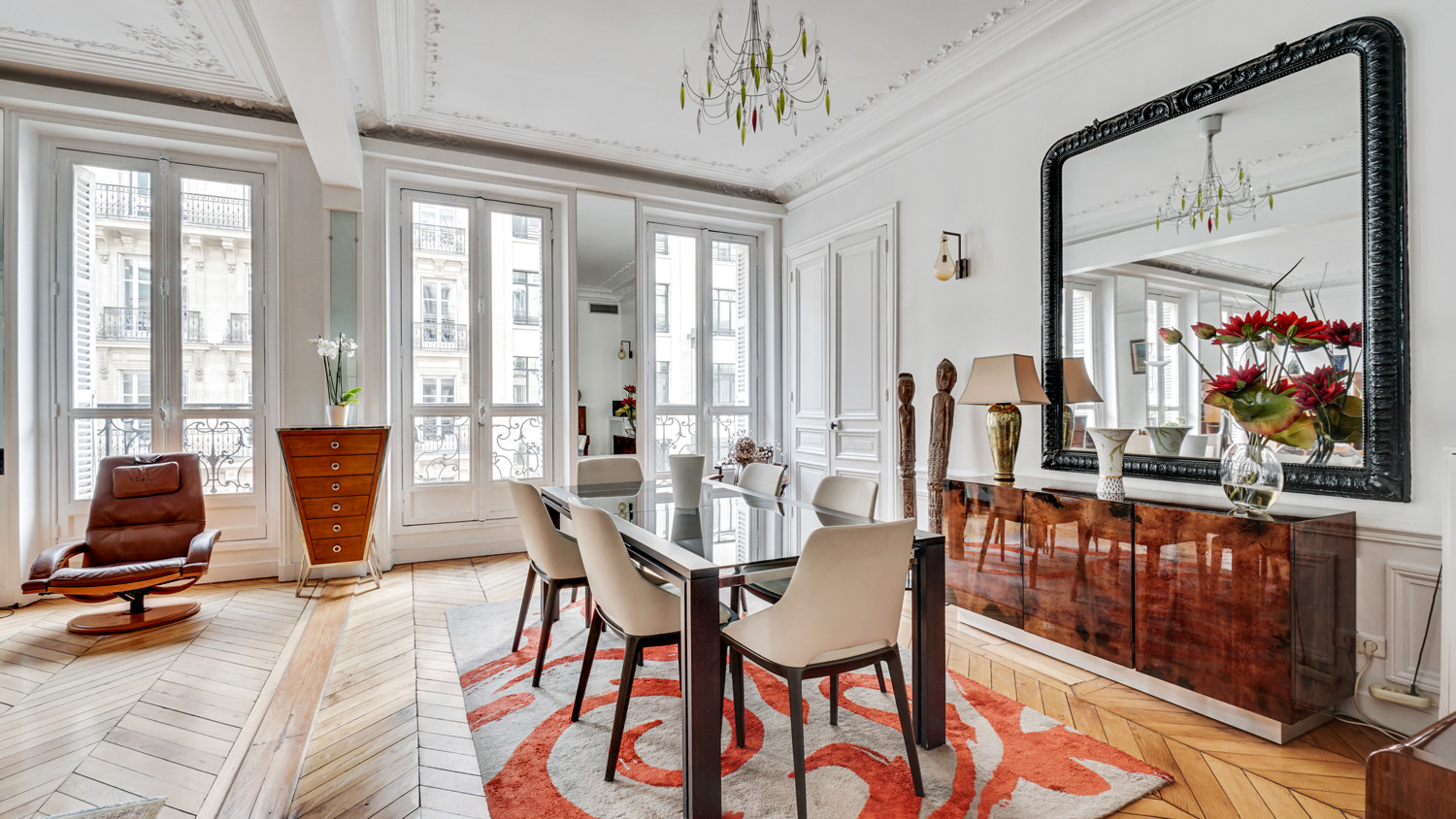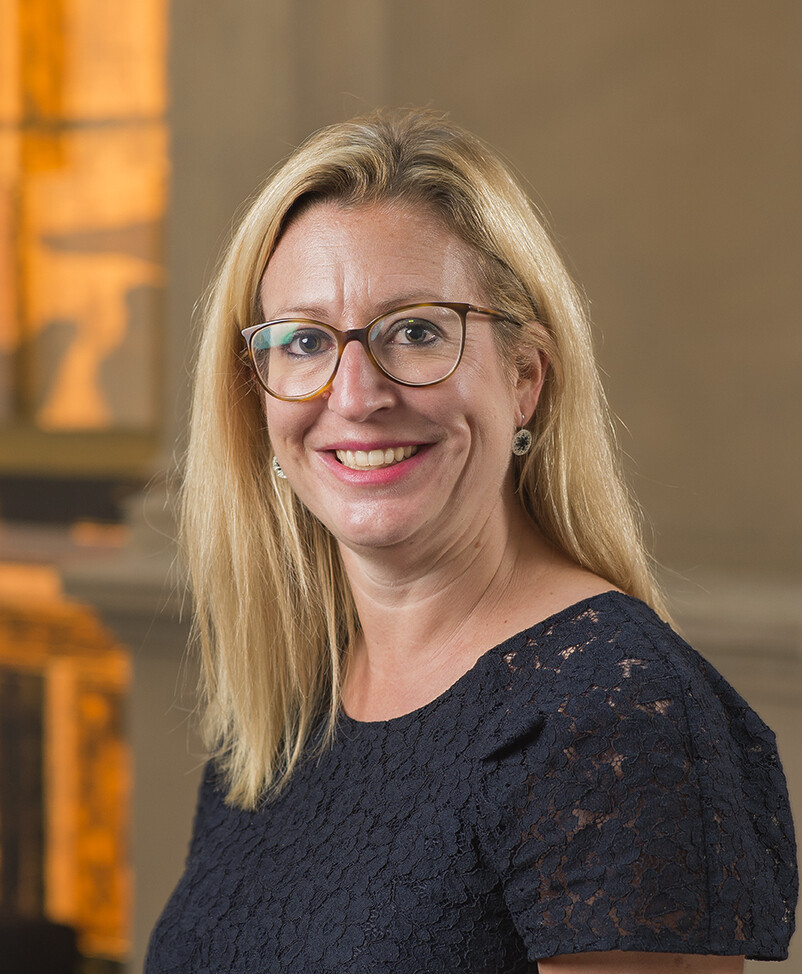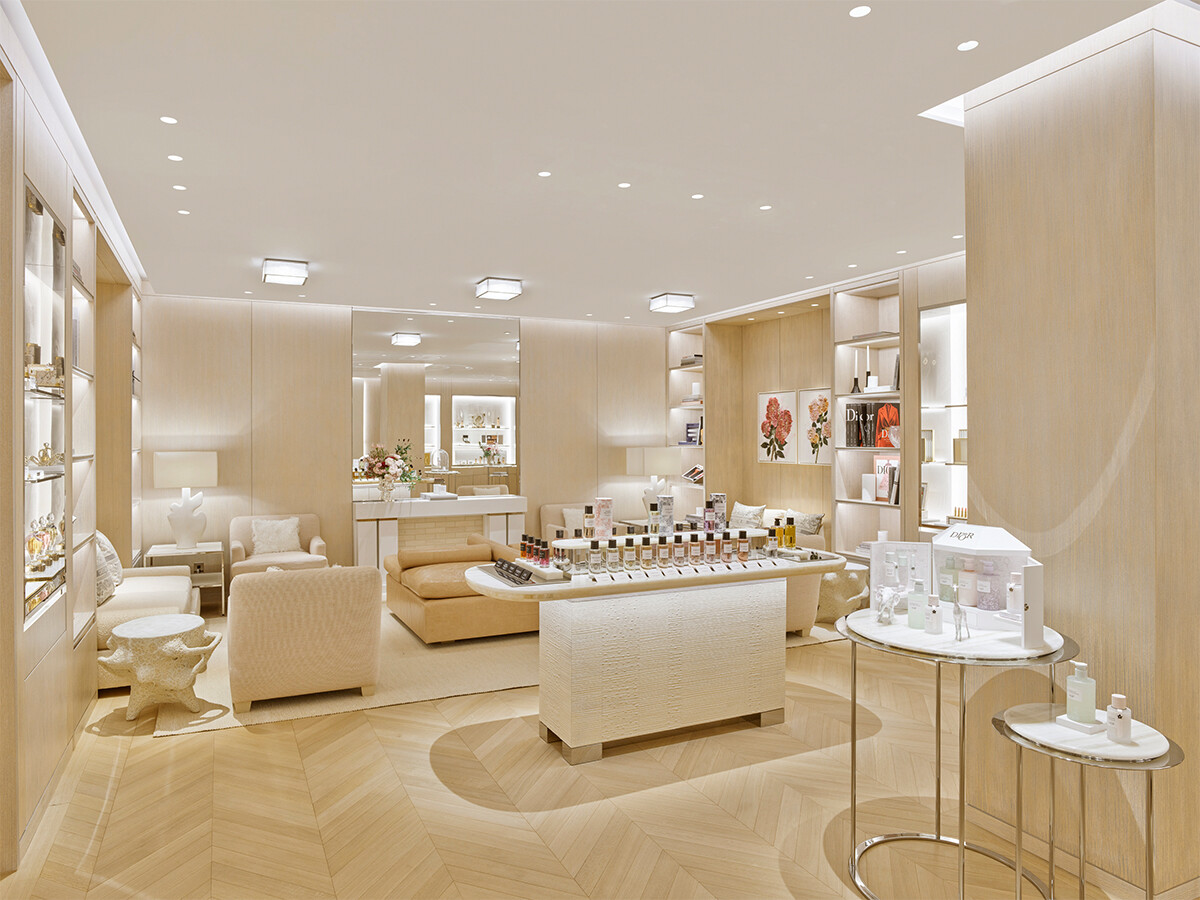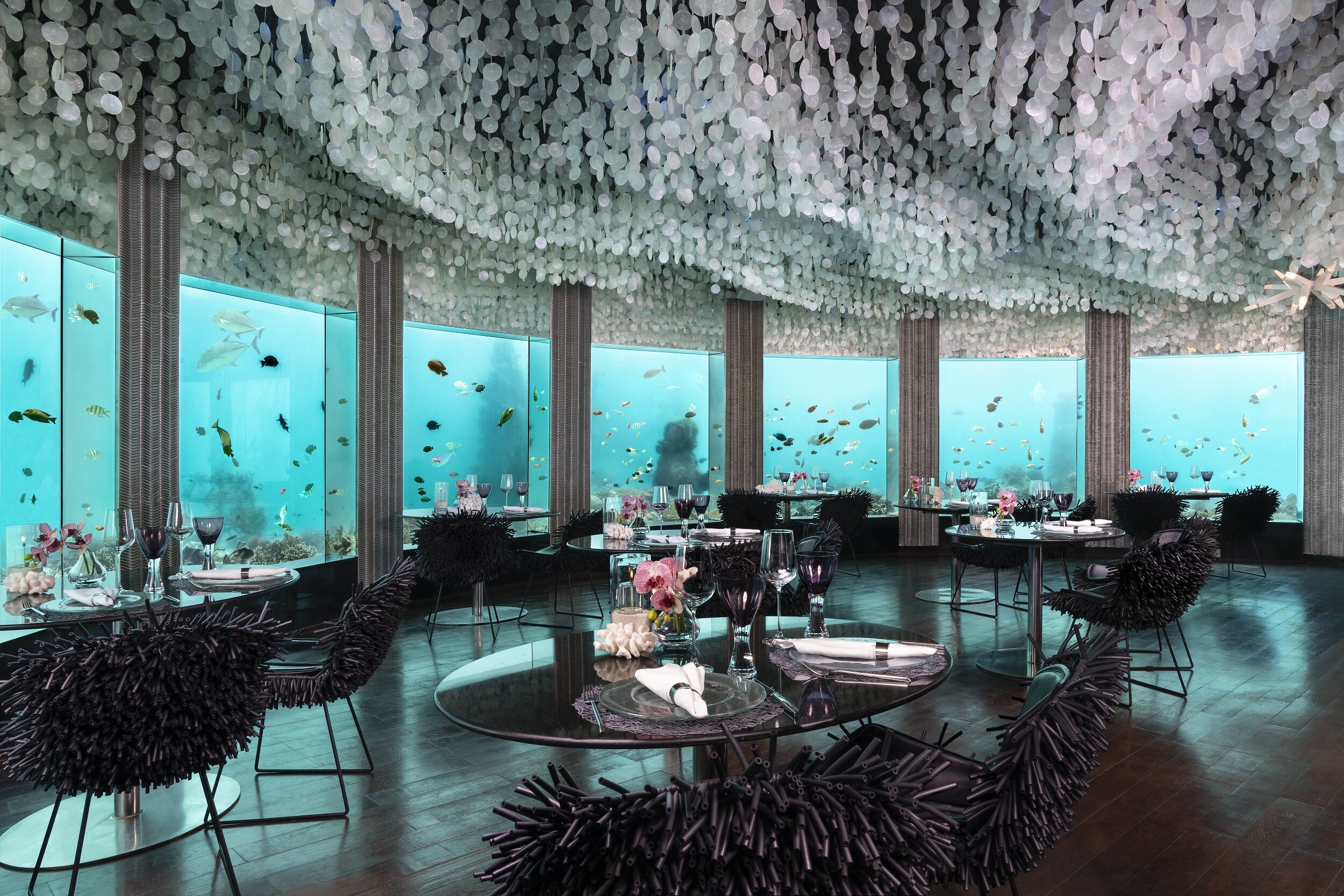The company was founded in the late 1970s by Dirk C. Engel, soon joined by Christian Völkers in the early 1980s. Fast-forward four decades; they are now the leaders in prestige real estate across the majority of the countries where they operate. They now enjoy worldwide presence that owes its success to an innovative approach combining international coverage, a wide geographical specialization and structural fluidity.
The Development Director for France, Marc Fourrier, shared with Vendôm how Engel & Völkers Consultants became the best local experts in their field. Having built an impressive career based on interaction and sharing experiences, he also explained about the strategic approach he adopted and continues to develop.

Vendom. Jobs - Could you introduce us to Engel & Völkers?
Marc Fourrier - The Engel & Völkers Group was founded in Hamburg, Germany in 1977. We are now present in 31 countries. We are constantly evolving and at present we employ 13,500 professionals around the world, with a turnover of 937 million euros in 2020 and forecast to reach above one billion in 2021.
Our French entity was set up in two phases: We launched our first office on the Côte d'Azur about ten years ago followed by a second one in Paris five years later. We operate three agencies in Cannes on the French Riviera and Saint-Jean-Cap-Ferrat, whilst the third was recently inaugurated in Saint-Tropez. As for Paris, in addition to our headquarters - the Market-Center located in our private hotel on Rue de Berri - we have two agencies, one located in the Marais and the other one in Passy. Moreover, we employ about 250 consultants in the Capital, making us the leading real estate agency in Paris.
We are quite extensive, for we have our own operating methods. Each Consultant handles a geographically specific portfolio, which allows him to have a comprehensive knowledge of the location he is dealing with. However, regardless of our segmented organization, we also maintain a strong cooperative working relationship with each other. We have a team dedicated to transactions, i.e. the sale of residential properties, a commercial real estate team and a team dedicated to leasing and management of leased properties.
V.J. - Which market are you targeting both from a territorial and market sector
M. F. - Engel & Völkers is the leader in Europe for prestigious locations, so our segment is high-end to premium, in Paris, but also on the Côte d'Azur (coastal and inland), for both primary and secondary properties as well as “pied-à-terre”. We constantly generate flows of incoming and outgoing buyers and sellers between France and neighboring countries where we are located.
We also have a "residences and castles" department dedicated to the French market. Furthermore, we have a team dedicated to commercial real estate (offices, hotels, shops, etc.) solely for Paris. We are active in yachting and private aviation, i.e. intermediation for the sale and rental of yachts and private jets, both worldwide and in France, although on a more occasional basis.
.jpeg)
V.J. - Did Engel & Völkers intend to offer this wide portfolio when founded?
M. F. - Indeed, from the beginning, both partners' aim to position the company on a high-end market by offering a first-class service locally as well as continuing the same service by assisting our clients internationally. Our presence is currently spread over four continents. In fact, we are particularly proud of our establishment in the USA, where we are among the leading luxury real estate companies. However, this market is not easy to integrate into for non-American-owned companies. However, our growth in the U.S. has been staggering. We now have more than 5,000 consultants there.
V.J. - What is Engels & Völkers' strength in such a competitive market?
M. F. - I think the main reason is the international scope of the company and our ability to easily integrate all our subsidiaries. Secondly, we combine international coverage with local expertise. Each consultant is a specialist in their own field. The area covered is smaller geographically compared to what is usually found in other agencies. Therefore, that means he must be familiar with every aspect of what is at stake: residential areas, obviously, number of properties, price range per square meter, and market trends as well as the neighborhood's history, architectural and cultural background. The ability to provide accurate information about a particular neighborhood is one of the specificities that have led to our success.
In addition, we have a great organizational skill set. Usually, a real estate agent focuses exclusively on his clients and rarely interacts with his colleagues. At Engels & Völkers we do things differently. For instance, if one of the consultant's clients wishes to buy a property in the 17th and finance this acquisition through the sale of another property in the 8th, unless specifically requested, the same consultant will not handle both transactions. In this case, the client is introduced to the consultant responsible for the area in which the property is located. This allows the client to benefit from an efficient and coordinated support for both of his projects. There commission is split for the consultants once the sale is finalized.

Our referral system is quite exclusive as far as I know: it not only enables us to better respond to the requirements expressed by clients, but also offers significant internal benefits. Our system works from one consultant to another, one team to another, an activity to another (between residential, commercial, and rental real estate), across regions and finally across countries! This system has resulted in over 600 sales in Paris, the majority of which are over one million euros, and has also enabled us to registered tens of thousands of buyers since our opening.
V.J. - Could you tell us about your career in real estate and your mission at Engels & Völkers?
M.F. - First, I consider myself as a young real estate specialist, as I only have 17 years of real estate transaction experience in the Paris area. There is still much to learn... I worked in various positions and structures, and in the last few years, I managed agencies. When I joined Engels & Völkers in 2018, I was in charge of the 9th and 18th district teams. However, my ambition was to be able to impart and train our new recruits. That's why I am responsible for recruitment. I believe that both functions are complementary, as we work in an industry with a significant influx of newcomers undergoing retraining.
V.J. - How does the training process at Engel & Völkers work?
M. F. - We offer an integration process for those who wish to join us, regardless of their experience in the real estate industry which sets us apart from many renowned companies. Renowned companies usually hire experienced professionals with proven track records in order to consolidate their own portfolios. It's just that our company is not typical, we hire from various sectors as well.
We first proceed by conducting a standard interview with a recruitment officer. Once the candidate's profile is validated, a new interview will be scheduled with one of our team leaders (each team consists of approximately 30 consultants). If the interview is successful for both parties, we invite the candidate to attend our "Welcome Days". I would say that we are the only ones doing this. It is a two-day induction where we introduce our activities, the realities of the real estate consultant's job, our internal functioning, etc. Only at the end of these two days, when the candidate is well informed and confident about the suitability of the activity, do we sign a contract.

Afterwards, the candidate undergoes a 15-day internal training before joining their assigned team. Following this, we will provide an even deeper integration process. The two-day presentation is followed by one in-house observation week, during which new recruits will be able to observe the operations of senior consultants and team leaders to acquire a better understanding of real estate activities. Afterwards, the 15 training days will be dedicated to learning the fundamentals of this profession, with practical training sessions to help them develop skills and be effective immediately. The final step of the training will consist of one-on-one coaching by a senior consultant. The newcomer will assist his coach in his tasks for one month and reciprocate what he understands. Finally, we provide an additional two months of partial coaching to assist new consultants on large projects.
V. J. - Being one of the few real estate companies to hire such high numbers of career transitional professionals, did you perceive major evolutions in their initial sector of activities
M. F. - Due to the recent pandemic we noticed a significant increase in candidates from the hotels, restaurants, tourisms, and event management sectors. We also have applications from those who previously worked in distribution, marketing, or communication. We have a wide range of candidates and receive several applications. We are highly focused on hiring candidates with a minimum background, who are familiar with the luxury industry and understanding the importance of delivering dedicated services to a specific market. Meaning, we would rather hire individuals whom we consider having a mindset and attitude in line with our high-end positioning.
V.J. - Could you tell us more about the skills and knowledge expected at Engel & Völkers?
M. F. - Obviously, I would consider interpersonal skills above all, considering that, in the real estate industry, technique is acquired mainly through experience. Motivation is the first thing I would say. Real estate jobs are harder than one might think. In fact, we are usually confronted with the mistrust when we introduce the services, we offer. Unlike what people think, our professions are not based on salesmanship, but rather on determination and hard work. It is important to be self-disciplined, as most of our consultants have no fixed income and are paid a commission based on their sales which is time consuming. That is why we require newcomers to have 6 to 9 months financial autonomy prior to their start date.
To conclude, I would like to say a respectful attitude towards customers, as our profession is not only about financial transactions, but it also involves interaction with customers, their personal background, culture, and feelings, which are all factors that have an impact when working in real estate. Our involvement in this process is crucial in helping clients achieve their life goals. We therefore need to handle it in an absolute professional manner and beyond just the commercial aspect.

V. J. - Let's go back to the terminology used, "luxury", "high-end", "prestige"... How do you differentiate between them? Which terms are most appropriate for the real estate?
M. F. - The term "luxury" can refer to numerous aspects not necessarily related to prestige. The main consideration, according to me, is the idea of "exception", i.e., to find oneself in front of an exclusive, exceptional asset. For example, a two-room penthouse apartment overlooking the Eiffel Tower, with a very large terrace on the top floor of the building. Although it is merely a two-room apartment, it remains an exceptional and rare property. The rareness of such properties classifies them amongst prestigious properties.
Furthermore, real estate in Paris is quite distinctive. We have, for example, many townhouses for sale. One might consider each as unique. Even so, there are various factors to consider, including the overall condition of the property as well as the market value which is the most important factor. If considerable renovation is needed, the property will not really be considered as a luxury property, we should thus consider the services, i.e., the flooring, quality of materials, equipment, the type of services provided in the building (guard, concierge), etc. The surroundings of each property constitute additional qualitative criteria.
Personally, I deem that one can refer to a luxury flat from a minimum specification. A property which can accommodate a family (three or four bedrooms minimum) with spacious living rooms and even reception areas can be considered luxury. In parallel, an attractive loft in a former industrial building, refurbished by a renowned architect, with exceptional materials, can also be considered a luxury property. However, we cannot completely limit ourselves to measurable data - such as size, ceiling height, etc. - the customer's feelings are crucial.
What matters is that the concepts of "luxury" and "exception" in real estate remain somewhat broader than those of consumer goods such as fashion, jewellery, crystal, etc… This makes it easier for us to be accurate about the quality of materials, construction, etc…
V. J. - Have you noted any changes in customers' expectations during and after the crisis?
M. F. - Not exactly in their attitudes. We paid close attention, from the beginning ensuring quality of services we provided, especially in terms of sanitary protocols. Each of our advisors went around with a comprehensive kit for both themselves and their clients, etc. Similarly, we increased our virtual tours, in 3D.
Moreover, during this period, we noticed a few changes in objective terms. One of them, which are unrelated to health issues, yet in line with the timing, was due to the impact of Brexit. Requests from the British or expatriates who returned to France increased significantly.
We have seen a decline in our international customers, which are fundamental to our markets. To compensate for this loss, we have had a change in the characteristics of the market for properties worth more than six million euros. These properties tended to suit a foreign market. French customers are emerging as buyers for these properties. New projects are emerging for less luxury properties, such as the sale of Parisian residences in order to acquire properties outside Paris.
V. J. - Do you recall an anecdote which either affected you or made you smile?
M. F. - Yes. Prior to the pandemic we had a two-day presentation, which I mentioned earlier, where candidates were able to spend half a day exploring our offices under the supervision of one of our advisors. On his way to meet the senior advisor, one of the candidates came across and approached Michaël Youn, whom he admired. The actor wanted to sell his private mansion just then. This was how we came to have his property in our portfolio, completely unexpectedly, almost on a doorstep! This event clearly testifies to what constitutes a prestigious real estate consultant: Open-mindedness, courtesy, flexibility, and reactivity.
(Photo credit: Engel & Völkers)






